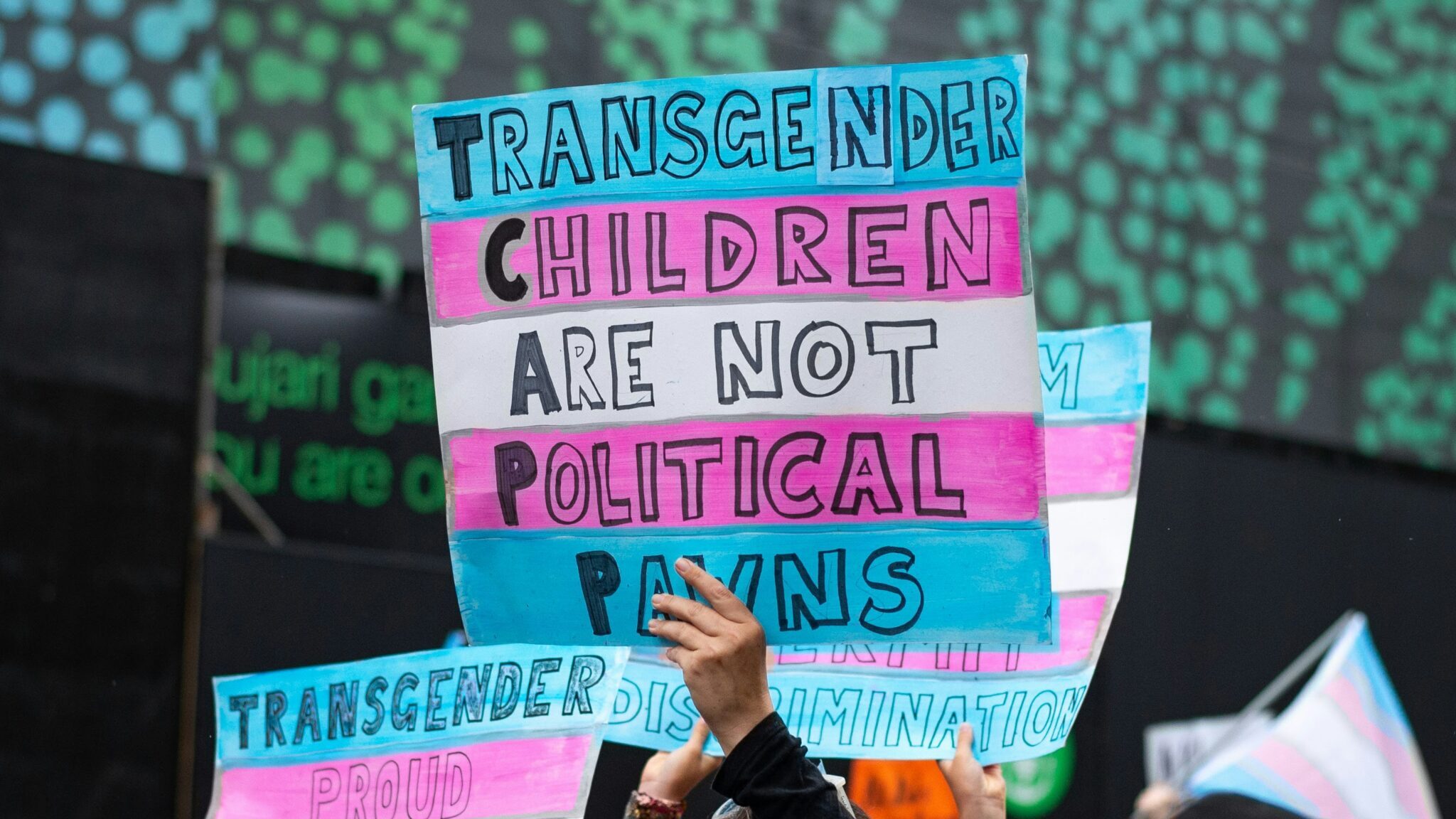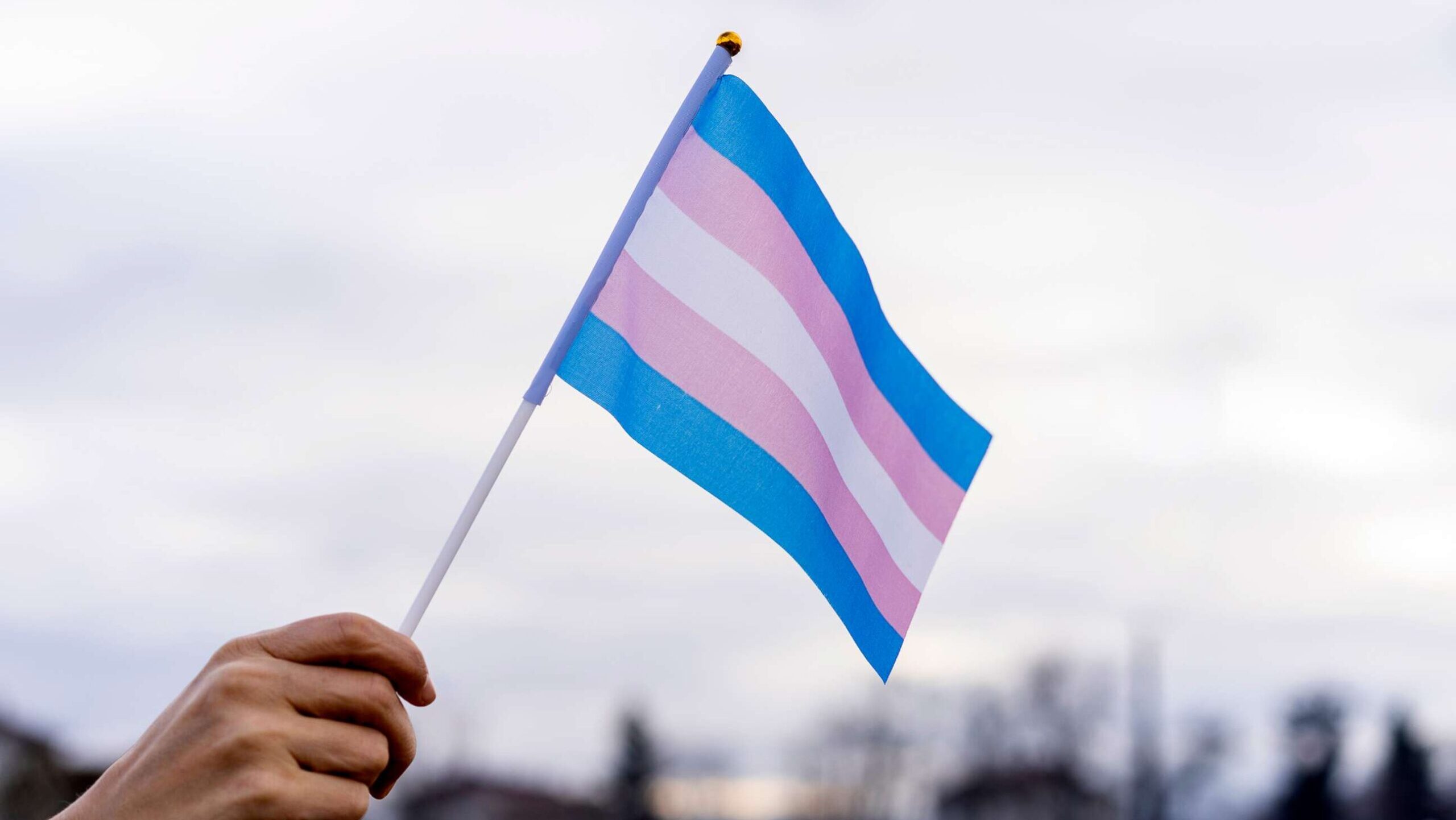Texas leaders have targeted trans youth, their families and gender-affirming care practices for months. It’s exacerbated feelings of anxiety and fear in trans youth, who already experience higher rates of depression, anxiety and suicide than their cis peers. Mental health practitioners can help navigate these feelings, but finding and accessing an affirming therapist in Texas can be a challenge.
For resources and support, call Trans Lifeline at 877-565-8860, The Trevor Project at 866-488-7386 or the National Suicide Prevention Lifeline at 800-273-8255.
Roswell Gray, 17, has seen a lot of different therapists’ offices. They’re always some variation of black and white and gray, the muted tones matching the monotony of having to explain everything over and over again to a new person, in the hopes they’ll be the right fit.
But Gray said walking into a new office, about an hour away from their home in Sherman, felt different.
“It was really simplistic, but there was a lot of beautiful art, a lot of different colors and stuff that made me smile,” Gray said. “She had a little mini fridge with snacks and drinks. And it was just like, super welcoming and inviting.”
But beyond the fully-stocked fridge and the décor, Gray’s therapist used their pronouns and asked about their gender identity. Their previous therapist “wasn’t great in many aspects,” and they had been looking for a provider who was trans-affirming and could talk about their Mormon faith.
“I was partially nervous because a lot of people of faith aren’t as accepting as I would like them to be,” said Gray. “It was really nice to hear her talk about how she’s dealt with other clients like me, who are also queer.”
Because of the drive to the office outside of Grayson County, gas prices and the pandemic, Gray hasn’t gone to therapy as often as they’d like. And it’s been hard to navigate the past few months, they said, as gender-affirming care has been caught up in a legal back-and-forth.
Lawmakers in Texas have increasingly tried to prevent access to gender-affirming mental health and medical care for trans youth since last year. Attorney General Ken Paxton and Gov. Greg Abbott have both targeted families providing medical care to their children. In addition, a bill the Texas legislature passed last year bans trans athletes from sports in school.
“Navigating Texas, with all the changes in laws and policies, has been really hard,” said Gray. “Especially when I would go on to social media, and everything I would would see is like, the state is banning trans youth from playing sports. So I spend less time on social media just to distance myself from all of the negative things.”
Gray and other trans youth are far from the only people feeling afraid and confused about the future of care in Texas.
As Texas leaders target gender-affirming care, psychologists’ work is caught in a legal back-and-forth
Mental health providers like Beck Munsey in North Texas are worried what statements from state leaders could mean for their work. Munsey is a clinician and educator who sees LGBTQ+ youth and adults. Part of Paxton and Abbott’s directives were that the Texas Department of Family and Protective Services, plus mandated reporters like physicians, mental health counselors like Munsey, and teachers, investigate and report families to the state.
“It is scary, because there may come a time where Texas law says that I’m not allowed to provide affirming care,” Munsey said. “And so I’ll have to make a moral decision on what I do with that.”
But clinicians and families are pushing back. Several families of trans youth, along with the Texas branch of the national advocacy organization PFLAG, filed a lawsuit to stop the state’s investigations. Doctors at UT Southwestern and Children’s Medical Center Dallas, which quietly closed its trans youth program GENECIS last winter due to political pressure and fear of lawsuits, are also currently in litigation to provide services to new patients.
This post first appeared in Keranews




